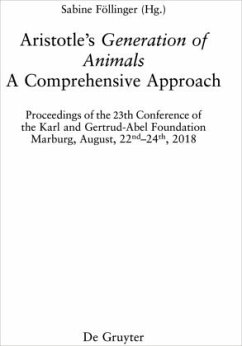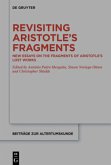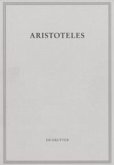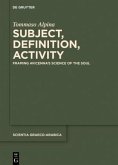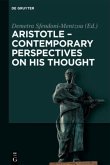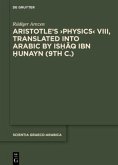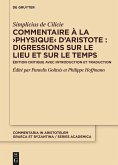Aristotle's work "On Generation of Animals" is fascinating. By integrating empirical facts into contexts of justification and by explaining reproduction in the framework of his general theory Aristotle wrote a biological 'masterpiece'. At the same time it raises many issues because due to the difficulty of the subject under investigation (for example, the egg-cell had not yet been discovered) the theory is complex and often speculative.
The contributions in this volume resulting from a conference held in Marburg in 2018 study the challenging writing from various perspectives. They examine the structure of the work, the method and the manner of writing, its relation to other writings, and its scientific context. By investigating the underlying philosophical concepts and their relation to the empirical research offered in "On Generation of Animals" the contributions also try to solve puzzles which Aristotle's explanation of the role of male and female offers as well ashis idea of embryogenesis. An outlook for the history of reception rounds off the volume.
Hinweis: Dieser Artikel kann nur an eine deutsche Lieferadresse ausgeliefert werden.
The contributions in this volume resulting from a conference held in Marburg in 2018 study the challenging writing from various perspectives. They examine the structure of the work, the method and the manner of writing, its relation to other writings, and its scientific context. By investigating the underlying philosophical concepts and their relation to the empirical research offered in "On Generation of Animals" the contributions also try to solve puzzles which Aristotle's explanation of the role of male and female offers as well ashis idea of embryogenesis. An outlook for the history of reception rounds off the volume.
Hinweis: Dieser Artikel kann nur an eine deutsche Lieferadresse ausgeliefert werden.

